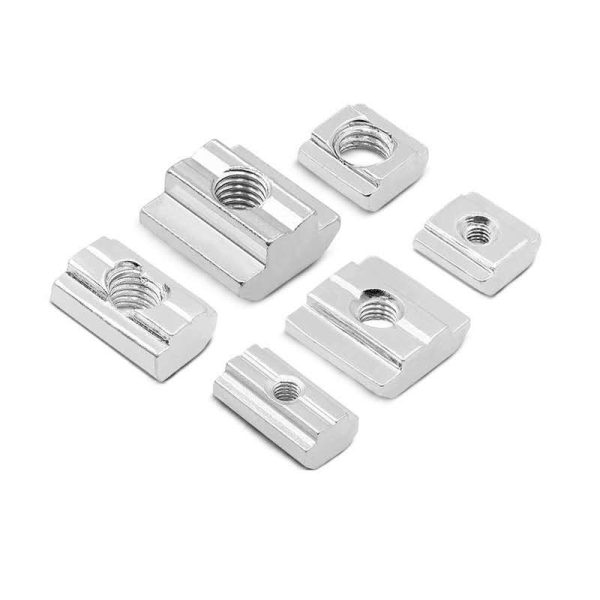
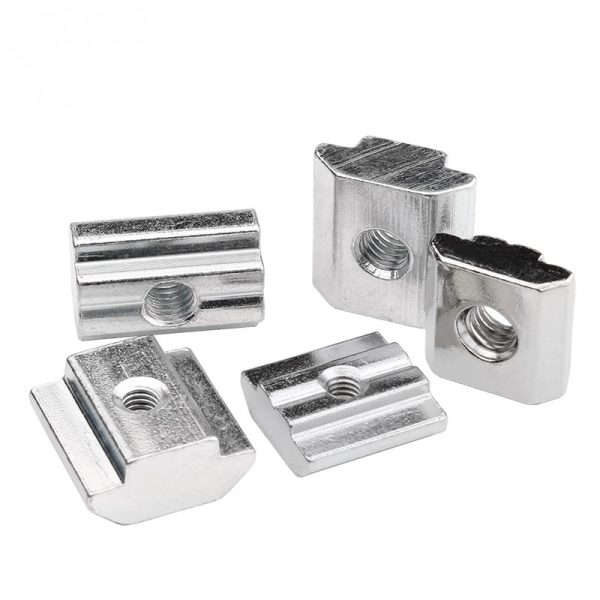
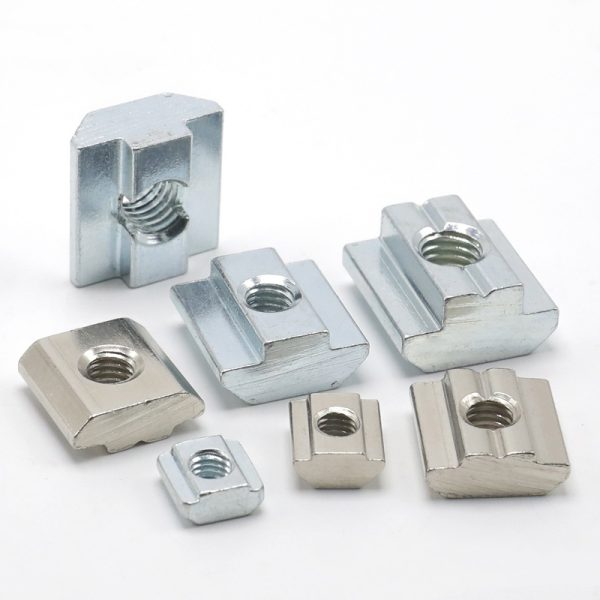
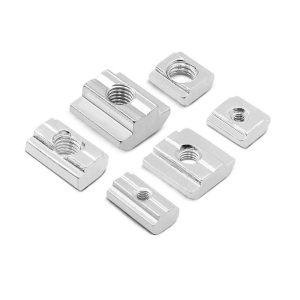
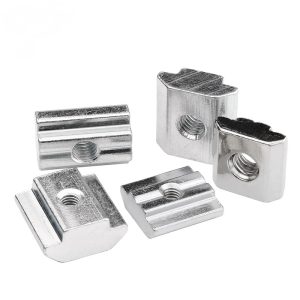
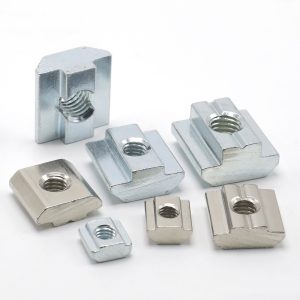
T Slot Sliding Nuts Self Aligning T Block Square Nuts for 20 30 40 45 Series Aluminum Profile Accessories
0 out of 5
T Slot Sliding Nuts Self Aligning T Block Square Nuts for 20 30 40 45 Series Aluminum Profile Accessories
- Deskripsi
- Ulasan (0)
Deskripsi
What Are Sliding Nuts?
Sliding nuts (also called channel nuts, t-track nuts, or adjustable nuts) are specialized fasteners designed to fit into T-slots, extrusion channels, or rail systems, allowing for adjustable positioning along the length of the track. Unlike traditional fixed nuts, sliding nuts can be moved freely within a groove before being secured with a bolt or screw, making them ideal for modular assembly, machinery, and framing systems.
These nuts are commonly used in aluminum extrusions, 80/20 framing, industrial equipment, and furniture assembly, where flexibility and repositioning are required.
Materials
Sliding nuts are manufactured from different materials to suit various load capacities and environmental conditions:
Carbon Steel – The most economical option, offering good strength for general industrial use.
Stainless Steel (304 or 316) – Provides excellent corrosion resistance, making it suitable for food processing, marine, and outdoor applications.
Aluminum – Lightweight and corrosion-resistant, often used in aerospace, robotics, and lightweight framing.
Brass – Used in electrical and low-friction applications due to its conductivity and smooth sliding properties.
Surface Treatments
To enhance durability and performance, sliding nuts may undergo the following surface treatments:
Zinc Plating – A standard anti-corrosion coating for indoor and general-purpose use.
Black Oxide – Provides mild rust resistance and a non-reflective finish, often used in machinery.
Hot-Dip Galvanizing – Offers superior corrosion protection for outdoor and heavy-duty industrial applications.
Anodizing (for Aluminum Nuts) – Improves wear resistance and provides a decorative finish.
Nickel or Chrome Plating – Enhances appearance and provides additional corrosion resistance.
Specifications
Sliding nuts come in various sizes and designs to fit different track systems:
Compatibility – Designed to fit T-slot extrusions (e.g., 6mm, 8mm, 10mm, or 1/4″, 3/8″, 1/2″ slots).
Thread Size – Common thread options include M4, M5, M6, M8, M10, 1/4″-20, 5/16″-18, and 3/8″-16.
Profile Shape – Can be square, rectangular, or low-profile to fit different channel depths.
Load Capacity – Varies by material and size, with stainless steel and hardened steel offering the highest strength.
Applications
Sliding nuts are widely used in industries that require modular and adjustable fastening solutions:
Industrial Machinery – Used in CNC machines, conveyor systems, and assembly jigs for adjustable component mounting.
Aluminum Extrusion Framing (e.g., 80/20, Bosch Rexroth, Item) – Essential for constructing modular workstations, robotic arms, and automation equipment.
Furniture & Display Systems – Allows for adjustable shelving, partitions, and retail displays.
Aerospace & Automotive – Used in lightweight framing, test rigs, and prototyping.
Electronics & 3D Printing – Enables adjustable mounting for enclosures, printers, and laser cutters.
Stage & Lighting Equipment – Facilitates quick repositioning of lights, trusses, and audio equipment.
Excellent Case: Modular Workstation Assembly for a Manufacturing Plant
Challenge
A factory needed to create adjustable workstations for assembly line workers, allowing for quick reconfiguration as production needs changed. Traditional bolted frames were rigid and time-consuming to modify.
Solution
The engineers chose aluminum T-slot extrusions (40mm x 40mm profile) with stainless steel sliding nuts (M8 thread, zinc-plated). This system allowed tool-free adjustments and easy repositioning of work surfaces, tool holders, and ergonomic supports.
Installation & Benefits
Extrusion Setup – Aluminum rails were mounted along the workstation frames, creating a grid of T-slots.
Sliding Nut Placement – Workers inserted sliding nuts into the channels, allowing them to move freely for optimal positioning.
Secure Fastening – Once in place, bolts were tightened to lock components (shelves, clamps, monitors) securely.
Results
Reduced Setup Time – Workstations could be reconfigured in minutes without disassembly.
Improved Flexibility – Production lines adapted quickly to new product designs.
Durability – Stainless steel nuts resisted wear and corrosion in an industrial environment.
Conclusion
Sliding nuts are an essential component in modular and adjustable framing systems, providing unmatched flexibility in machinery, automation, and structural assembly. Their ability to slide within tracks and lock securely makes them ideal for dynamic applications where repositioning is key.
Whether used in industrial automation, furniture design, or aerospace engineering, sliding nuts enhance efficiency and adaptability in fastening solutions.

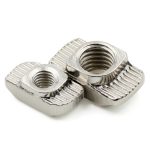
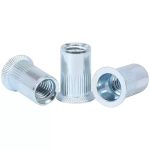
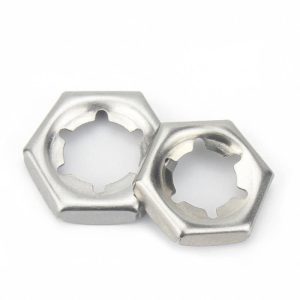
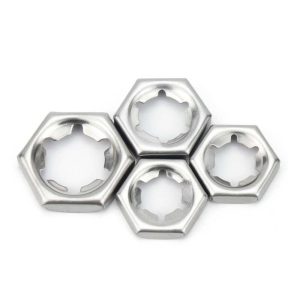
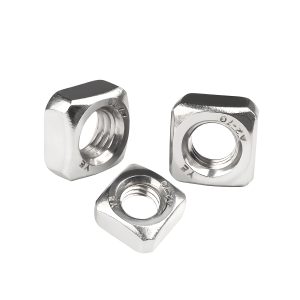
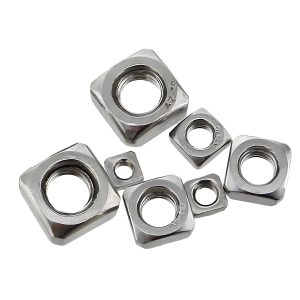
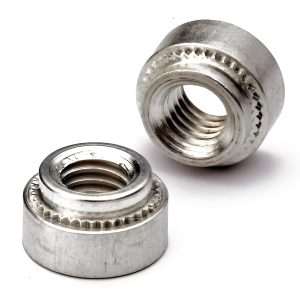
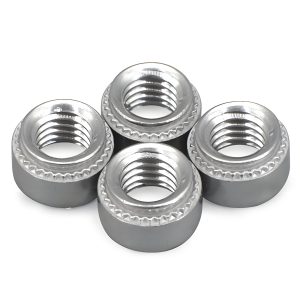


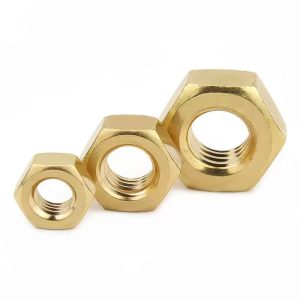
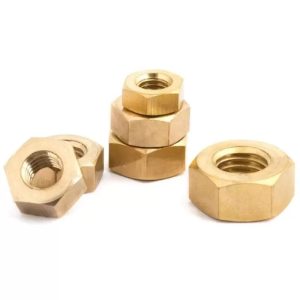
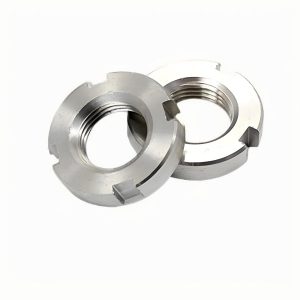
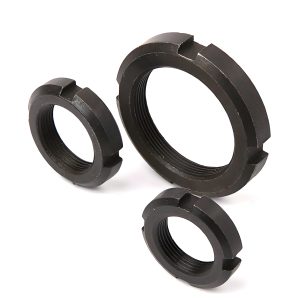
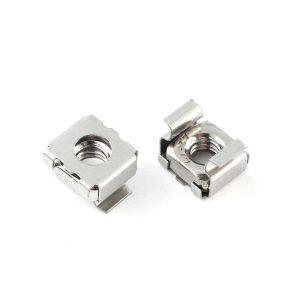
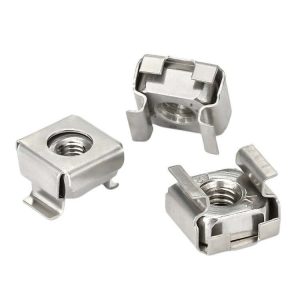
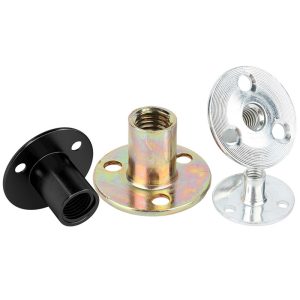
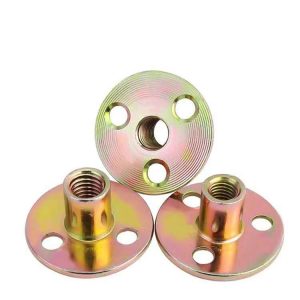
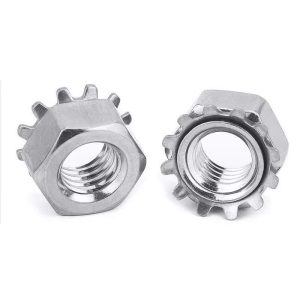
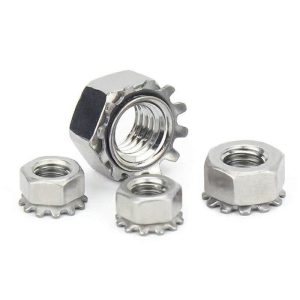
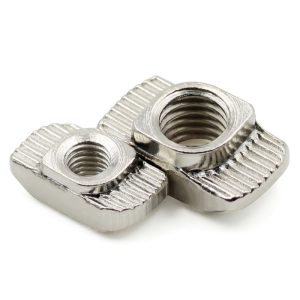
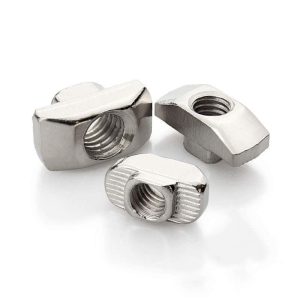
Ulasan
Belum ada ulasan.